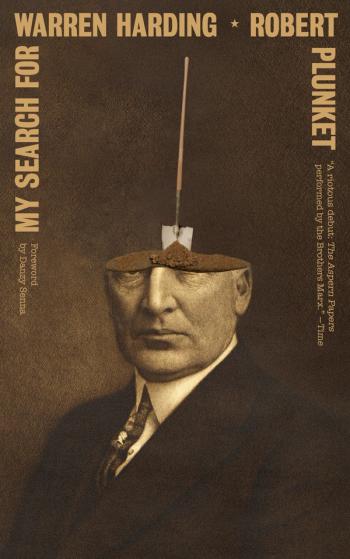With a contribution by Danzy Senna
When My Search for Warren Harding, Robert Plunket’s glittering story of literary sleuthing and deceit, first appeared in 1983, it garnered immediate and far-reaching acclaim. Frank Conroy at the Washington Post exclaimed, “The author pulled me in so deftly, moved me up an escalating scale of sly hyperbole so cunningly, that after a hundred pages, I seemed to have turned over the keys, so to speak, of my nervous system”; Florence King at the Dallas Times Herald called it “The most exciting event in American letters for a very long time: a momentous book.” More recently, though long out of print, it was canonized in The Guardian’s “1000 Novels Everyone Must Read,” ranked by the Washington Post as one of the top five books of “great American comic fiction,” and praised by Michael Leone in the Los Angeles Review of Books as “a classic picaresque novel in the tradition of Cervantes.”
Set against the fading light of early-1980s Hollywood, our deeply flawed, bigoted, closeted antihero Elliot Weiner is a historian—Harvard BA, Columbia PhD—with a passion for Morris dancing and Warren Harding, “the shallowest President in history.” After Weiner receives a research grant to write a book on the tumultuous life of Harding, he gets wind of a trunkful of the twenty-ninth president’s bawdy billets-doux that is rumored to be fiercely guarded by his ancient mistress Rebekah Kinney on her declining Hollywood Hills estate. Nothing and no one can stand in the way of Weiner getting his paws on the treasure, and along the way, as the words dance across the page, a hysterical, guffaw-inducing punchline around every corner, Weiner reaches new lows of humiliation and self-delusion.


